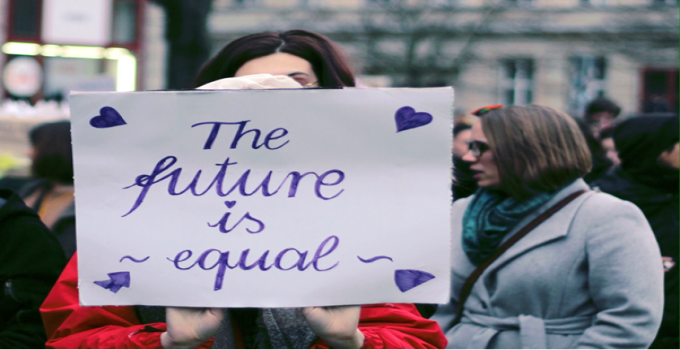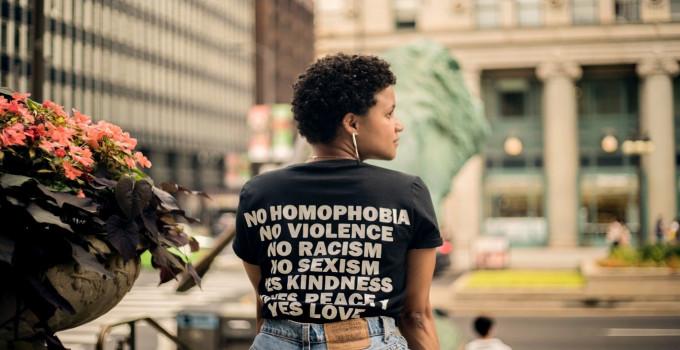World Cultural Diversity Day for Dialogue and Development

Culture is defined as the set of values which drive our behaviours as a result of factors such as race, ethnicity, gender, ability, language, nationality, religious or sexual orientation to name a few.
Due to globalisation, we live in an increasingly diverse society where individuals have numerous beliefs and cultural practices. Respecting these differences is key if we wish to formulate an intercultural dialogue which promotes social harmony and inclusivity.
Cultural diversity in the workplace
To have a culturally diverse workplace means to have a hub of various stories, perspectives and beliefs. Over a tenth of the UK population (13.8%)1 are from a minority ethnic background. Placing inclusivity and diversity in organisation values and policies can enable a more inclusive environment for individuals from minority communities and allows individuals to feel they are respected, seen and provided for.
A survey conducted by Deloitte2 has shown that workplaces which prioritise cultural diversity are twice as likely to meet or exceed their objectives and six times more likely to be innovative.

Women in the workplace
The percentage of women in the workplace has increased, however, there is more work to be done – as there remains an absence of female representation in leadership roles and a discrepancy in their pay in comparison to their male counterparts. The Global Gender Pay Gap Report 20203 has projected that it will take over 100 years to achieve gender equality if we continue at the current rate of progress and employment rates show COVID-19 has increased the level of female unemployment.
Studies have shown whole workplaces benefit from gender diversity. Fortune 500 companies with the highest representation of women on boards financially outperform companies with the lowest numbers4 and gender diverse teams achieve higher targets in comparison to teams that are solely male.
Beyond this, having more women in the workplace has been shown to increase job satisfaction, organisational dedication, and an increased sense of meaning or fulfilment. Researchers remark that in order to retain women in an organisation female employees desire meaningful work, support in differing schedules, and opportunities for progression and promotion.
Respecting all cultures and ethnic minorities
A report from the Muslim Council of Britain5 showcased that employers and employees must consider their practices and understand that some social settings, such as socialising in a pub, may not be comfortable for their Muslim colleagues. Introducing inclusive social events could include going to a cafe with your team or sports such as a company’s football team. When organising food, it’s important to also ensure that Halal options are available for those that adopt this diet.

LGBTQ+ inclusivity
According to a 2018 Stonewall report on being LGBT in Britain, a significant percentage of LGBT+ employees (35%) are afraid to disclose their sexuality6 for fear of being discriminated against. The report recommends that employers develop clear zero-tolerance policies on homophobic, biphobic and transphobic bullying in the workplace, support staff through inclusion training and ensure that they recruit and promote diverse candidates on their website and social media for instance.
By educating on the numerous cultural identities and weaving the narrative of inclusivity into company values and job applications, organisations can assure that current employees and future candidates feel that theirs is a culture which will be welcomed and respected within their workplace.
Five ways to foster cultural diversity in the workplace
- Nurture an inclusive culture – ensure that a zero-tolerance policy for discrimination is put in place and made evident to all employees.
- Transparent recruitment – state on the job description that you are an equal opportunity employer. Make it evident that you are solely focusing on the competency and expertise of the individual and that each applicant is being treated equally.
- Avoid gendered language – do not assume that anyone ascribes to a Sir or Madam title and respect their wishes when they request that they be addressed under the right pronouns for them.
- Ensure that ethnic minority individuals are represented at each level of the company – in order for an organisation to be considered diverse, it must ensure that those within the BAME community are represented at each level of the organisation.
- Creating sessions where individuals can share what diversity means to them – conduct a discussion where individuals can talk to HR and management teams about their cultural practices and their experiences as a result of their identity and how the workplace can best cater to their needs.
There are many more ways to ensure that your organisation is prioritising inclusivity and diversity but the crucial step lies in recognising the importance of creating this environment and consistently working toward making your workplace a space in which difference is respected and celebrated.
The connection between culture and nature around the world

The Maori people in New Zealand are interdependent on nature, not because they can capitalise on its resources, but because they believe that respecting nature is a means by which to respect one’s ancestors and secure the future.
This protective narrative is prevalent throughout many indigenous communities who feel a profound sense of respect and belonging when among nature. Consequently, theirs is a way of life which utilises sustainable practices and resources, limiting the harm made to the earth and its climate.
As a result, they have become the custodians of the land and ecosystems. The world’s 370 million indigenous people represent only 5% of the total population7 but they officially hold 18% of the land.
The Maori people are an example of how we can work collectively to protect and respect the environment, rather than extract resources and cause harm to our planet. Their voices deserve to be heard in conversations and decisions made about the land they live on.
References
1 https://www.thehrdirector.com/features/future-of-hr/businesses-can-foster-diverse-working-culture/
3 http://www3.weforum.org/docs/WEF_GGGR_2020.pdf
4 https://www.ccl.org/articles/leading-effectively-articles/7-reasons-want-women-workplace/
6 https://www.stonewall.org.uk/system/files/lgbt_in_britain_work_report.pdf
7 https://www.unep.org/news-and-stories/story/indigenous-people-and-nature-tradition-conservation
10 https://www.bbc.com/worklife/article/20201007-the-changes-that-could-help-women-stay-employed
